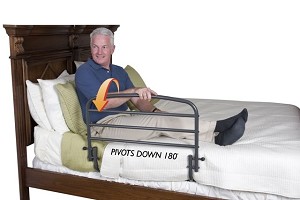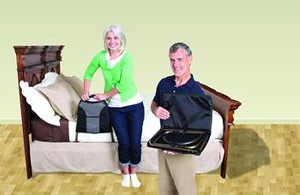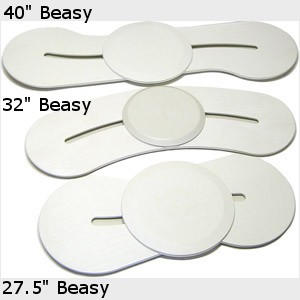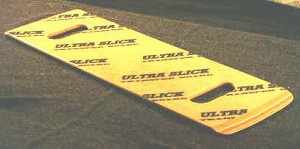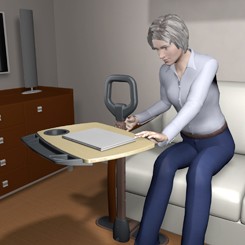- Providing Helpful Healthcare Products Since 1999 | Our Hours: 8 AM - 5 PM CST Mon - Fri
- +1-877-750-0376
Give him something to lean on this Father’s Day
Father’s Day gifts for hard-to-reach places
May 26, 2013A stable father deserves a stable cane on Father’s Day
May 26, 2013Give him something to lean on this Father’s Day
Prevent the ever-present danger of falling this Father's Day with these gifts to lean on.
As the population of people aged 65 and older rises in the U.S., a phenomenon is occurring that many of you are probably living with firsthand: informal caregiving. This is when an elderly or disabled person relies totally or in part on a family member or friend for daily care. According to the Family Caregiver Alliance, 29 percent of the U.S. adult population are unpaid caregivers, and most caregivers are women.
Increasingly, many of us are finding ourselves in the situation of having to care for our elderly or disabled parents. If you are one of these caregivers, you likely are aware of one of the tough challenges faced when caring for a loved one—preventing falls. Indeed, in a situation where we live with those we take care of, it is difficult to feel like we are keeping as much watch over our loved ones as we need to.
The Centers for Disease Control says 20 to 30 percent of falls result in severe injuries and are the most common cause of trauma. We all know stories of caregivers waking from a nap or coming in from mowing the lawn to find their elderly parent lying helpless on the floor.
Ways to relieve stress
As a caregiver, it is important to have peace of mind. There are more than one way to relieve the stress and overload. It can be beneficial to seek outside help, for instance, from family, churches or service organizations in order to receive some respite. There are also support groups and counseling. The Family Caregiver Alliance also recommends seeking the right assistive technology to increase your loved one’s independence and safety.
If you or another family member are responsible for taking care of your father or husband, the perfect Father’s Day gift this year could be an assistive technology device for his specific situation. The simplest piece of equipment can make all the difference. The CDC says falling, in particular, is one of the most easily averted health risks. With Father’s Day just around the corner, we have many devices the father in your life could lean on during the riskiest parts of his daily routine.
Peace of mind with bed rails
Installing a Standers 30 Inch Safety Bed Rail could allow you to sleep more peacefully during the night by not worrying about your father down the hall falling out of his bed. The Safety Bed Rail is very sturdy can be used to prevent falls while sleeping as well as while getting in and out of bed, and it only takes about four minutes to install.
If your father is not as prone to falling out of bed at night and only needs help standing up from the bed or transferring, perhaps the Bedside Econorail would be more suitable. Weighing in at only two pounds, the Econorail is perfect for travel. It fits right under the mattress and involves minimum setup.
Make transferring easier
Of course, transferring into and out of a bed to a chair can be dangerous when lifting, both for the caregiver and their loved one. Transfer boards and slides are an adaptive technology option you may want to consider for your father if transferring has been difficult or straining. The BeasyTrans™ Transfer Slide System would allow your father to move on a sliding platform to the bed, wheelchair, toilet or automobile. Also available is the UltraSlick® Transfer Board. This transfer board costs a little less and is made with a slick plastic surface and strong hardwood to increase strength.
Get a grip! Grab bars make standing safer and easier
Maybe your father has trouble getting up from the couch or his favorite chair and doesn’t always have someone to assist him. The Security Pole and Grab Bar is a durable piece of equipment with large handle grip bars for your father to be able to go to a standing position more safely.
Another handy device your father can use to get out of his chair safely is the Assist-A-Tray. The Assist-A-Tray kills two birds in one stone by functioning both as a dinner tray and a support for standing. Your father will be able to swing away the dinner tray 360 degrees and use a handle to pull himself securely into a standing position.
If your father or husband relies on you for daily help, consider using these types of adaptive technology to improve yours and his peace of mind.

